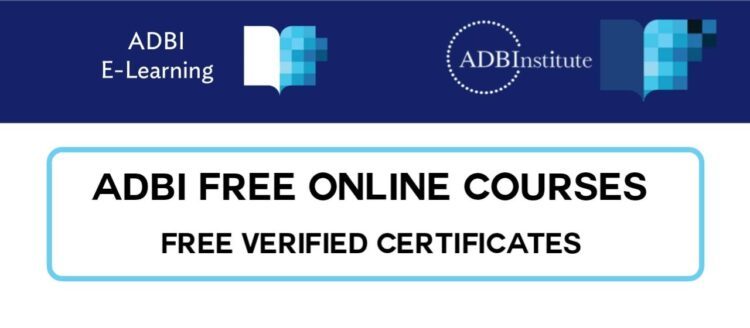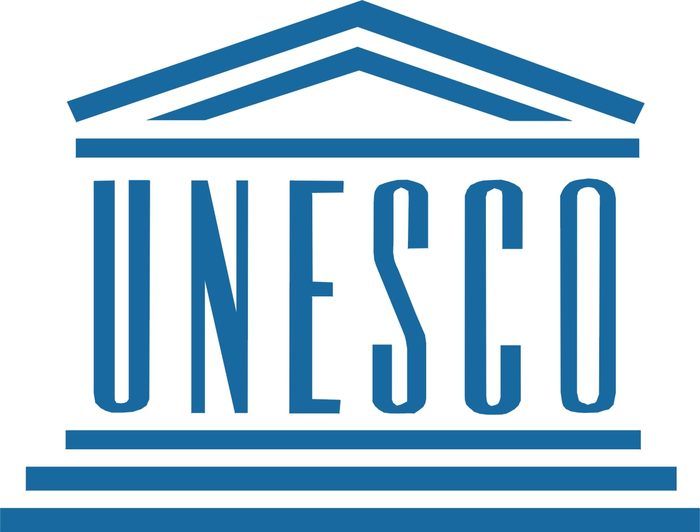ADBI Free Online Courses 2025 (ADBI E-Learning)
ADBI E-Learning offers free online courses for 2025, providing globally accessible, high-quality
education in economics, development, and policy research. Designed by the Asian Development Bank Institute, these courses cater to students, professionals, and policymakers seeking to enhance their skills. With interactive modules and certifications upon completion, learners gain valuable insights into sustainable development and global economic trends.
ADBI E-Learning 2025 empowers learners with free courses on topics like finance, sustainable development, and infrastructure. Accessible anytime, these courses ensure flexibility for global participants. Certification boosts your resume and demonstrates your expertise in critical areas. Enroll today and join a community dedicated to advancing knowledge for impactful development and policy making.
Benefits:
- Learn at your own pace, anytime, anywhere.
- Gain expert insights from leading professionals.
- Network with global professionals sharing similar goals.
- Advance your career with enhanced skills and knowledge.
- Access valuable resources for long-term learning.
- Earn a certificate to boost your professional profile.
Eligibility Criteria:
- Open to learners of all nationalities and educational backgrounds.
- Suitable for students, professionals, and policymakers interested in economics and development.
- No prior experience is required; courses are beginner-friendly with advanced options available.
- Participants must have internet access to join the online learning platform.
- Enthusiasm for self-paced learning and commitment to completing the courses is encouraged.
- Accessible to all age groups, with no age limitations.
- No specific academic qualifications are required to apply.
List of ADBI
- Transformation of Water Services Through Public-Private Partnership
- Data Innovation for Development: Civic Participation for Social Good and Well-Being
- Infrastructure Financing Foundations
- Artificial Intelligence (AI) for Social Impact
- Enhancing Gender Integration in Scaled and Sustained Government Health Programs
- High-Speed Rail Development: Historical Context and Impact Evaluation
- High-Speed Rail Development: Impacts, Benefits, and Opportunities
- Global Perspective of Frontiers in High-Speed Rail Development
- Cybersecurity
- Rights and Obligations in E-commerce
- Introduction to E-commerce
- Infrastructure Operations and Maintenance
- Infrastructure Planning and Decision-Making Strategies
- Infrastructure Development Frameworks and Commercialization Opportunities
- Applying Principles of Developing Quality Infrastructure in Asia
- Addressing Gender Gaps in Vaccinations and Immunization: A Life-Course Approach
- Plant-Covered Parking
- Low-Carbon Cooling
- Circular Economy Policy Maker E-Training
- Rethinking Higher Education Financing and Policies in a Changing World
- Circular Economy: Increasing Resource Efficiency and Designing Out Waste
- Inclusive Digital Economies and Gender Equality Playbook
- Demographic Transition and its Impacts on Fiscal Sustainability in East and Southeast Asia
- Sustainable and Quality Infrastructure Beyond the COVID-19 Pandemic
- The Role of Central Banks and Financial Supervisory Authorities in Governing Sustainable Finance
- Climate Change and Sovereign Risk
- Governing Sustainable Finance
- Green Investments: Renewable Energy
- Energy Economics, Environment, and Policy
- Leveraging Services for Development: Prospects and Policies
- Fostering Growth and Inclusion in Asia’s Cities
- Introduction to Sustainable Development in Asia and the Pacific
- Financial Globalization, Capital Flows, and the Global Financial Cycle
- Financial Integration in Southeast Asia
- Advancing the Digital Economy for Sustainable Growth in Asia
- Financial Inclusion: Evolution and Contemporary Challenges
- Achieving Sustainable Development Goals on Water and Sanitation
- Financial Inclusion, Financial Literacy, and Financial Education in Asia
- Private Financing for Infrastructure and Sustainable Growth
How to enroll?
- Visit the ADBI Elearning website: Go to the ADBI website and navigate to the “Learning and Training” section to find the list of available online courses.
- Choose a course: Browse the list of courses and select the one you want to enroll in. Read the course description, objectives, and learning outcomes to ensure that it aligns with your interests and goals.
- Create an account: If you don’t already have an account with ADBI, you will need to create one. This will allow you to access the course materials and track your progress.
- Enroll in the course: Once you have created an account, click the “Enroll” button to start the enrollment process. Follow the instructions to complete the enrollment process, which may include filling out a short form and agreeing to the terms and conditions.
- Start learning: Once you have completed the enrollment process, you can start learning and participating in the course activities. You can access the course materials, watch videos, participate in discussions, and complete assignments.
Note: Availability of courses and the enrollment process may vary, so it’s important to check the ADBI website for the most up-to-date information.




